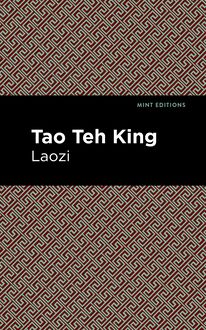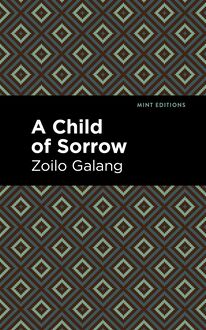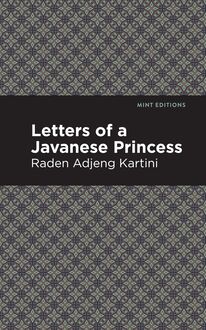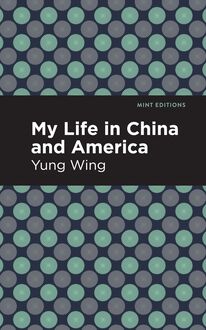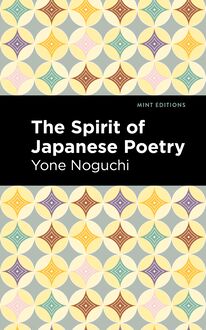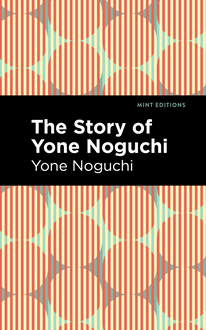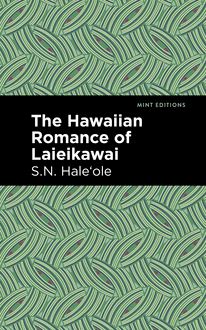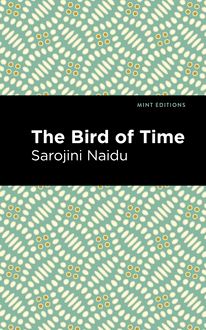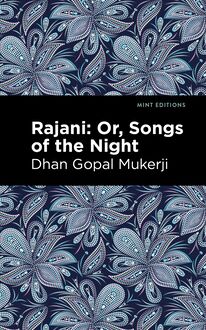-
 Univers
Univers
-
 Ebooks
Ebooks
-
 Livres audio
Livres audio
-
 Presse
Presse
-
 Podcasts
Podcasts
-
 BD
BD
-
 Documents
Documents
-
- Cours
- Révisions
- Ressources pédagogiques
- Sciences de l’éducation
- Manuels scolaires
- Langues
- Travaux de classe
- Annales de BEP
- Etudes supérieures
- Maternelle et primaire
- Fiches de lecture
- Orientation scolaire
- Méthodologie
- Corrigés de devoir
- Annales d’examens et concours
- Annales du bac
- Annales du brevet
- Rapports de stage
La lecture à portée de main
Vous pourrez modifier la taille du texte de cet ouvrage
Découvre YouScribe en t'inscrivant gratuitement
Je m'inscrisDécouvre YouScribe en t'inscrivant gratuitement
Je m'inscrisEn savoir plus
Vous pourrez modifier la taille du texte de cet ouvrage
En savoir plus

Description
The Spirit of Japanese Poetry (1914) is a collection of essays by Yone Noguchi. Although he is widely recognized as a leading poet in English and Japanese of the modernist period, Noguchi was also a dedicated literary critic who advocated for the cross-pollination of national poetries. His essays on the Noh drama and Hokku poems influenced Ezra Pound, William Butler Yeats, and countless other artists from the West.
“Not only the English poetry, but any poetry of any country, is bound to become stale and stupid if it shuts itself up for too long a time; it must sooner or later be rejuvenated and enlivened with some new force.” For Noguchi, it is not only educational to immerse oneself in the art of other cultures, but vital for those cultures to flourish. As a Japanese poet who excelled with a modern, free verse style of English poetry, Noguchi advocated for his contemporaries to attempt a similar radical openness—to possibility, uncertainty, and change. In these brilliant, instructive essays, he provides his understanding of the spiritual, otherworldly nature of Japanese poetry, reflects on the function of silence in the traditional Noh drama, and praises the lyric essence of Hokku poems.
With a beautifully designed cover and professionally typeset manuscript, this edition of Yone Noguchi’s The Spirit of Japanese Poetry is a classic of Japanese American literature reimagined for modern readers.
Sujets
Informations
| Publié par | Mint Editions |
| Date de parution | 24 mars 2021 |
| Nombre de lectures | 0 |
| EAN13 | 9781513287522 |
| Langue | English |
| Poids de l'ouvrage | 1 Mo |
Informations légales : prix de location à la page 0,0300€. Cette information est donnée uniquement à titre indicatif conformément à la législation en vigueur.
Extrait
The Spirit of Japanese Poetry
Yone Noguchi
The Spirit of Japanese Poetry was first published in 1914.
This edition published by Mint Editions 2021.
ISBN 9781513282503 | E-ISBN 9781513287522
Published by Mint Editions®
minteditionbooks .com
Publishing Director: Jennifer Newens
Design & Production: Rachel Lopez Metzger
Project Manager: Micaela Clark
Typesetting: Westchester Publishing Services
T HE P OET
Out of the deep and the dark,
A sparkling mystery, a shape,
Something perfect,
Comes like the stir of the day;
One whose breath is an odour,
Whose eyes show the road to stars,
The breeze on his face,
The glory of Heaven on his back.
He steps like a vision hung in air
Diffusing the passion of eternity;
His abode is the sunlight of morn,
The music of eve his speech;
In his sight
One shall turn from the dust of the grave
And move upward to the woodland.
—Yone Noguchi
C ONTENTS E DITORIAL N OTE I NTRODUCTION I. T HE S PIRIT OF J APANESE P OETRY II. T HE J APANESE H OKKU P OETRY III. N O: T HE J APANESE P LAY OF S ILENCE IV. T HE E ARLIEST J APANESE P OETRY V. T HE P OETS OF P RESENT J APAN VI. S OME U TA S PECIMENS FROM THE H YAKUNIN I SHIU A NTHOLOGY C OMPILED IN 1235 BY S ADAIYE, A N OBLE OF THE K YOTO C OURT
E DITORIAL N OTE
The object of the Editors of this series is a very definite one. They desire above all things that, in their humble way, these books shall be the ambassadors of good-will and understanding between East and West—the old world of Thought and the new of Action. In this endeavour, and in their own sphere, they are but followers of the highest example in the land. They are confident that a deeper knowledge of the great ideals and lofty philosophy of Oriental thought may help to a revival of that true spirit of Charity which neither despises nor fears the nations of another creed and colour.
L. C RANMER- B YNG
S. A. K APADIA
I NTRODUCTION
T here are beauties and characteristics of poetry of any country which cannot be plainly seen by those who are born with them; it is often a foreigner’s privilege to see them and use them, without a moment’s hesitation, to his best advantage as he conceives it. I have seen examples of it in the work of Western artists in adopting our Japanese traits of art, the traits which turned meaningless for us a long time ago, and whose beauties were lost in time’s dust; but what a force and peculiarity of art Utamaro or Hiroshige, to believe the general supposition, inspired in Monet, Whistler and others! It may seem strange to think how the Japanese art of the Ukiyoye school, nearly dead, commonplace at its best, could work such a wonder when it was adopted by the Western hand; but after all that is not strange at all. And is it not the same case with poetry? Not only the English poetry, but any poetry of any country, is bound to become stale and stupid if it shuts itself up for too long a time; it must sooner or later be rejuvenated and enlivened with some new force. To shake off classicism, or to put it more abruptly, to forget everything of history or usage, often means to make a fresh start; such a start often begins being suggested by the poetry of some foreign country, and gains a strength and beauty. That is why even we Japanese, I dare say, can make some contribution to English poetry. The English poem, as it seems to me, is governed too greatly by old history and too-respectable prosody; just compare it with the English prose, which has made such a stride in the recent age, to see and be amazed at its unchanging gait. Perhaps it is my destitution of musical sense (a Western critic declared that Japanese are for the most part unmusical) to find myself more often unmoved by the English rhymes and metres; let me confess that, before perceiving the silver sound of a poet like Tennyson or Swinburne, born under the golden clime, my own Japanese mind already revolts and rebels against something in English poems or verses which, for lack of a proper expression, we might call physical or external. As my attention is never held by the harmony of language, I go straightforward to the writer’s inner soul to speculate on it, and talk with it; briefly, I am sound-blind or tone-deaf—that is my honest confession. It is not only my own confession, but the general confession of nearly all Japanese; our Japanese minds always turn, let me dare say, to something imaginative.
It is my own opinion that the appearance of Basho, our beloved Hokku master, was the greatest happening of our Japanese annals; the Japanese poetry, which had been degenerating for centuries, received a sudden salvation through his own pain and imagination. His greatest hope, to become a poet without words, was finally realised; he was, as I once wrote on the Buddha priest in meditation:
“He feels a touch beyond word,
He reads the silence’s sigh,
And prays before his own soul and destiny:
He is a pseudonym of the universal Consciousness,
A person lonesome from concentration.”
When the Japanese poetry joined its hand with the stage, we have the No drama, in which the characters sway in music, soft but vivid, as if a web in the air of perfume; we Japanese find our own joy and sorrow in it. Oh, what a tragedy and beauty in the No stage! I always think that it would be certainly a great thing if the No drama could be properly introduced into the West; the result would be no small protest against the Western stage, it would mean a real revelation for those people who are well tired of their own plays with a certain pantomimic spirit underneath.
We started our country as the land of poetry; our forefathers were poets themselves. They were free as the winds are free. When our modern young poets cry to go back to the age of their forefathers, they think that it is only the way to escape from the so-called literature and gain this poetical strength and beauty; it is their opinion that they find all the Western literary ideals in our Japanese ancient life and poetry. But I often quarrelled with them on the point that the real poetry of any country should be an expression of beauty and truth; we must build, I always insist, our poetry on our own true culture, which we formed through the pain and patience of centuries. It is my own opinion that the true Japanese poetry should be, as I once wrote, a potted tree of a thousand years’ growth; our song should be a Japanese teahouse—four mats and a half in all—where we burn the rarest incense which rises to the sky; again our song should be an opal with six colours that shine within.
People who are already familiar with the Japanese poetry would ask me why I did not dwell on our Uta poetry at some length; I confess that my poetical taste desires far more intensity than the Uta poems, whose artificial execution often proves, in my opinion, to be their weakness rather than strength. Besides, they should be treated independently in a separate volume; they have their own poetical history of more than two thousand years.
“The Japanese Hokku Poetry” is the lecture delivered in the Hall of Magdalen College at the invitation of Mr. Robert Bridges, the Poet Laureate, and Dr. T. H. Warren, President of the College and Professor of Poetry in the University; and my lectures at the Japan Society, the Royal Asiatic Society, and the Quest Society have been based more or less on the other chapters in the book.
Y. N.
L ONDON ,
March 10 th , 1914
I
T HE S PIRIT OF J APANESE P OETRY
I come always to the conclusion that the English poets waste too much energy in “words, words, words,” and make, doubtless with all good intentions, their inner meaning frustrate, at least less distinguished, simply from the reason that its full liberty to appear naked is denied. It is the poets more than the novelists who not only misinterpret their own meaning, but often deceive their own souls. When I say it seems that they take a so-called poetical licence, I mean that what they write about, to speak slangily, by the yard, is not Life or Voice itself; from such a view-point I do not hesitate to declare that the English poets, particularly the American poets, are far behind the novelists. I can prove with many instances that there are books and books of “poems” in which one cannot find any particular design of their authors; it is never too much to say that they have a good intention, though not wise at best; but, after all, to have only that good intention is not the way to make art or literature advance.
I always insist that the written poems, even when they are said to be good, are only the second best, as the very best poems are left unwritten or sung in silence. It is my opinion that the real test for poets is how far they resist their impulse to utterance, or, in another word, to the publication of their own work—not how much they have written, but how much they have destroyed. To live poetry is the main thing, and the question of the poems written or published is indeed secondary; from such a reason I regard our Basho Matsuwo, the seventeen-syllable Hokku poet of three hundred and fifty years ago, as great, while the work credited to his wonderful name could be printed in less than one hundred pages of any ordinary size. And it is from the same reason that I pay an equal reverence to Stephane Mallarm é , the so-called French symbolist, though I do not know the exact meaning of that term. While they are poets different in nature, true to say, as different as a Japanese from a Frenchman (or it might be said, as same as the French and the Japanese), it seems to me that they join hands unconditionally in the point of denying their hearts too free play, with the result of making poetry living and divine, not making merely “words, words, and words,” and further in the point that both of them, the Japanese and the Frenchman, are poetical realists whose true realism is heightened or “enigmatised” by the strength of
-
 Univers
Univers
-
 Ebooks
Ebooks
-
 Livres audio
Livres audio
-
 Presse
Presse
-
 Podcasts
Podcasts
-
 BD
BD
-
 Documents
Documents
-
Jeunesse
-
Littérature
-
Ressources professionnelles
-
Santé et bien-être
-
Savoirs
-
Education
-
Loisirs et hobbies
-
Art, musique et cinéma
-
Actualité et débat de société
-
Jeunesse
-
Littérature
-
Ressources professionnelles
-
Santé et bien-être
-
Savoirs
-
Education
-
Loisirs et hobbies
-
Art, musique et cinéma
-
Actualité et débat de société
-
Actualités
-
Lifestyle
-
Presse jeunesse
-
Presse professionnelle
-
Pratique
-
Presse sportive
-
Presse internationale
-
Culture & Médias
-
Action et Aventures
-
Science-fiction et Fantasy
-
Société
-
Jeunesse
-
Littérature
-
Ressources professionnelles
-
Santé et bien-être
-
Savoirs
-
Education
-
Loisirs et hobbies
-
Art, musique et cinéma
-
Actualité et débat de société
- Cours
- Révisions
- Ressources pédagogiques
- Sciences de l’éducation
- Manuels scolaires
- Langues
- Travaux de classe
- Annales de BEP
- Etudes supérieures
- Maternelle et primaire
- Fiches de lecture
- Orientation scolaire
- Méthodologie
- Corrigés de devoir
- Annales d’examens et concours
- Annales du bac
- Annales du brevet
- Rapports de stage

